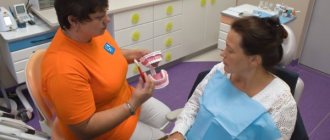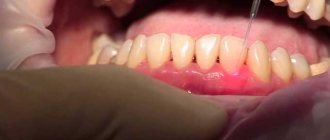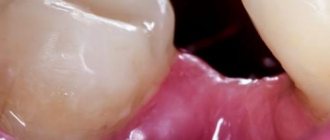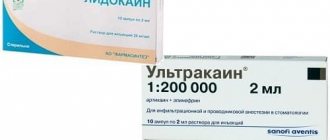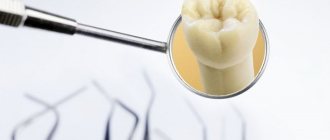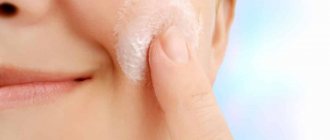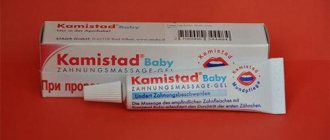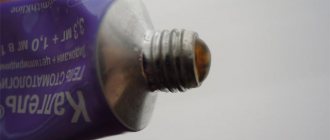1665
Dental implantation in our country became available to patients more than 20 years ago, but throughout the world this technique of restoring the integrity of the dentition has been practiced for about half a century.
In recent years, many specialists have appeared in Russia who are ready to demonstrate their professionalism and experience in the field of implantology at the world level.
Despite successful practical experience and the production of high-quality systems by domestic manufacturers, dental implantation abroad is in great demand.
It must be said that this area is actively developing, and today the so-called dental tourism is in fashion, the purpose of which is to obtain high-quality European services.
Features of implantation abroad
Implantation abroad, especially for a person familiar with the “Soviet deficit” and its consequences, may seem like the best option for restoring teeth. It seems that implants abroad are of higher quality, and technology is more developed, and doctors are better trained. But reality suggests that there is absolutely no reason for manufacturers of implantation systems and developers of treatment protocols to supply the best products to one country and the worst to another. Otherwise, the company will simply earn a bad reputation and lose its market.
However, the reality is that due to the “youth” of implantation in our country there is not a sufficient number of clinics and specialists working in this direction. And abroad, this area has long been put on stream and is actively advertised. Moreover, advertisers know the mentality of Russians so well that they present in a favorable light precisely those positive aspects of implantation abroad, which ultimately become a “selection criterion.” And negative factors are avoided so skillfully that a person does not even think about them.
Simpl Swiss implant (Switzerland) + metal-ceramic crown = 35,000 rub.
All manipulations are included, treatment guaranteed!
Save RUB 15,000. for implantation >> Free consultation with an implantologist +7 (495) 215-52-31 or write to us
Positive aspects that attract patients
First of all, patients are attracted by the high quality of treatment. But this is only possible if the clinic has really good materials, equipment and staffing. For example, before implantation it is necessary to undergo a computed tomography scan of the jaw (cone beam or multispiral) and undergo a series of tests to identify contraindications.
Modern clinics in any country operate according to international standards and plan the course of implantation using 3D computer modeling (for which tomography of the patient is useful), create surgical templates (for precise positioning of implants). Additionally, X-Guide navigation is used, and growth factors - APRF membranes - are added during the operation to accelerate tissue regeneration.
The advantages of implantation abroad are as follows:
- the use of modern types of anesthesia and sedation: this can be local anesthesia, general anesthesia or xenon sedation,
- the possibility of using modern implantation techniques: one-step installation of an implant immediately after tooth extraction, one-stage technology with the installation of a full-fledged prosthesis in just a few days,
- comfort for the patient: depends on the equipment of the clinic and the client-oriented staff - how friendly the doctors and administrators are, whether they answer questions on the topic,
- the prestige of treatment: it is really important for many people to then tell their friends that they were treated abroad,
- free hotel accommodation and cultural program: usually such services are provided by Asian clinics if the patient restores a large number of teeth at once,
- “free” medications after implantation: painkillers and antibiotics - their cost is already taken into account in the general price list,
- an opportunity to see the world and change the scenery.
In some countries, it is customary to hire special companies to accompany the patient - so that the person is met and helped to get to the hotel-clinic, provided with an interpreter, and after implantation taken to the airport, train station or ferry. Usually these services are already included in the cost of treatment, but do not forget to read the contract carefully so as not to stumble upon pitfalls later.
Negative aspects that are not usually talked about
- expenses for travel or flights, as well as for additional tests (if Russian ones are not suitable),
- the need to obtain a passport and visa,
- the need to treat all dental diseases in advance: usually a foreign clinic is already highly specialized for implantation, or the cost of caries treatment, etc. it is very high (the price of a filling can be comparable to the average Russian salary),
- the need to build up bone in the area where the implant is installed in the presence of atrophy - which means additional money and time,
- language barrier: having an experienced translator is of course an advantage. But, firstly, the translation takes time, and secondly, “contact” between the patient and the dentist may not be established,
- acclimatization: changes in climate and time zones worsen your well-being, and new water and food can lead to problems with the gastrointestinal tract. All this will ultimately affect the rate of implant engraftment for the worse and can cause complications,
- The difference is in the mentality and habits of the new environment: in a number of countries, pharmacies and shops are not open in the evenings and on weekends. Ignorance of the rules of behavior in public places can result in a fine. Therefore, before your trip, you should definitely familiarize yourself with the following nuances:
- the need to repeatedly return to the clinic for observation and prosthetics: after all, if a person needs to restore only 1-2 teeth, then a prosthesis cannot be placed immediately - you need to wait for the implants to heal (2-6 months), and then install a prosthesis,
- short warranty period for implants: for example, in China they most often provide a product warranty of only 15-20 years, while most global manufacturers provide a lifetime product warranty,
- not everywhere there is a guarantee for the work of a doctor: but here it is fair to add that in Russia, such a guarantee is given by individual clinics,
- It’s difficult to get your money back if peri-implantitis, rejection, or the prosthesis falls out: you’ll have to return to another country again (waste time and money). And if the clinic does not compensate for the damage, then hire a lawyer and sue (which again means time and money). And you can only win if your case is stated in the contract with the clinic as a guarantee.
Do not forget that the contract for implantation must be drawn up in accordance with all the rules. And it must be accompanied by barcodes of the implants, which can be checked for originality on the manufacturer’s website. Only in this case does the patient have “protection” in the event of a warranty claim.
You should also not rely on the prices indicated on the website of a foreign dental clinic. Do not forget that in many countries, the installation of implants is covered (partially or fully) by the citizen’s health insurance, which is not the case for a “tourist” who comes for treatment.
How to choose a dental clinic?
We offer a short guide for those who call or visit various clinics in order to find out “where, what and how much.” Try to find out the following about the company advertising itself:
- whether it owns the most modern equipment or works on relatively outdated ones. Both can be presented as foreign and called new;
- Does it use the declared technologies in full or in part? In the latter case, the quality of work decreases sharply;
- Are the materials of today's generation or those of yesterday used? The differences between them can significantly affect the efficiency of the work performed;
- Is a comprehensive diagnosis of the condition of the oral cavity carried out before any treatment, or does the doctor concentrate only on the patient’s complaints. The use of even the latest tools for local diagnostics does not allow us to see the problem in its entirety, understand its causes, predict the development of the disease and ultimately provide effective treatment;
- Does the company have dental specialists of various profiles on its staff - therapists, surgeons, orthodontists, periodontists, radiologists, or is it a narrow profile? The absence of an ensemble of specialists sharply narrows the vision of patients’ problems, often leading to cases of undertreatment;
- is the patient invited to discuss the recommended treatment plan, reflecting his complaints and the condition of the entire oral cavity, or does the doctor limit his attention to the symptoms indicated by the patient himself, seeking immediate income;
- Are reasonable warranty periods given, taking into account the patient’s problem, the scope of the treatment plan completed, the nature of the treatment performed, or are “average” terms acceptable to the customer issued for all cases?
Popular implant brands abroad
It’s worth saying right away that implant brands that are popular in Europe and Asia are also common in our country. And when receiving treatment abroad on a fairly common brand of implants, a person can be sure that, if necessary, in Russia they can pick up “spare parts” for it - for example, if the abutment needs to be replaced. You just need to find out in advance which implants will be installed abroad - after all, many foreign dentists do not indicate this information on their websites.
In fact, the brand and model of the implant is very important, because its characteristics determine how well it will fix, take root (fuse with the jaw bone, osseointegrate) and how long it will last. As for the survival rate of implants installed abroad, for example, in Europe this figure is 98.2-99%. In Asian countries - about 95-98% from Israeli manufacturers, and for Korean and Chinese brands there are no current statistics (they are either not collected or not disclosed).
Common brands of dental implants in Europe:
- Nobel: This company occupies a leading position because it released the world's first implants. The range includes several dozen models, as well as advanced implants that can be loaded with a prosthesis as quickly as possible. In addition, the company offers various solutions for restoring a full row of teeth - with three, four or six implants,
- Straumann: this Swiss brand is considered one of the best in the world, because... The implant survival rate is almost 99%. Strauman develops its own materials - for example, the strongest titanium and zirconium alloy Roxolid, the drug Emdogain for the restoration of periodontal tissue (the ligamentous apparatus of the tooth), the treatment protocol for the complete absence of teeth Pro Arch and much more,
- models of the company Dentsply Sirona (Astra Tech, Ankylos, XiVE): the American-German concern produces 3 types of implants at once - premium “Astra Tech” and “Ankyloz”, as well as “Xive” from the middle price segment. All brands are distinguished by high quality and excellent survival rate. Separately, we can highlight the unique Astra Tech design, which is suitable for people with unevenly atrophied jaw bone - on one side the neck of the implant is higher, and on the other lower,
- Zimmer from Zimmer Biomet: Zimmer produces not only dental, but also joint implants. And not only made of pure titanium, but also the only trabecular implants in the world made of biocompatible tantalum,
- Oneway Biomed: designs from the Swiss manufacturer Ihde Dental AG are designed for basal implantation in its modern interpretation not only abroad, but also in our country. The operation is carried out without a traumatic installation and with a predictable result of dental restoration, even in patients with diabetes, periodontitis and periodontal disease, and in experienced smokers.
All these brands are also represented in Russia.
Common brands of dental implants in Asia:
- Alpha-Bio: An Israeli company produces structures from durable Grade 5 titanium alloy (with the addition of aluminum and vanadium). Alpha-Bio systems show high survival rate thanks to the special NanoTec surface,
- MIS: another representative from Israel, belonging to the middle price segment. Features of "MIS" - pure unalloyed titanium in the composition and the availability of models for installation in bone of any density,
- Adin: Israeli Adin systems, although they belong to the budget segment, have an active surface treated with phosphorus - which improves their survival rate,
- Dentium company (Implantium and SuperLine brands): representatives of the South Korean manufacturer, characterized by high survival rate (about 98%), which is achieved due to the increased contact area with the bone due to the rough surface (obtained by abrasive processing and acid etching),
- DIO: another representative of the budget sector from South Korea, which has proven itself well with two-stage classical implantation. It is not recommended to use them for accelerated loading of the prosthesis, because The RBM surface has a simple abrasive treatment and fuses with the bone in 4-6 months.
Which countries do people most often go to “to get new teeth”?
When a patient is considering options for dental implantation abroad, he can be guided by the following factors – where is better, where is closer, where is cheaper.
Where is the best place to place implants?
In terms of quality, one thing can be said - it is better to install implants at the clinical site of some progressive manufacturer. That is, in dentistry, which is an official partner of a large brand that has proven the quality of its products through many years of laboratory and clinical tests (optimally if the implant brand has existed for 35-40 years or more). Countries: Germany, Switzerland, Japan (and Russia too).
Where is the closest place to place implants?
It all depends on where a person lives. The best option is to contact the nearest Russian dental clinic, where professional implantologists work, whose skills are confirmed by impressive work experience and certificates from implant manufacturers. If you want to go abroad, then choose one from your time zone and with a similar climate at a given time of year to make it easier to acclimatize. This could be South Korea, China, Israel, European countries.
Where is it cheaper to get implants?
Perhaps the following statement will surprise someone, but it is still cheaper to install implants in our country, because... There are no large expenses for visas, flights, accommodation, food and the possible risks of treatment. Later in the article we will go deeper into this topic. If you still want to inexpensively install implants abroad, then you can pay attention to China (although the reviews about the treatment are very doubtful, and you can’t always trust them, and residents of the central and western parts of the country will have to spend money on flights).
Dental tourism: pros and cons
Dental tourism is gaining momentum in post-Soviet countries. But is it really so profitable to treat teeth while traveling to other countries? Dental tourism is considered a new thing for the CIS countries, but in the West it has become widespread. For example, US residents fly to Costa Rica and Mexico, where dental treatment is 60% cheaper than in their home country. And the population of Great Britain and Germany gives preference to dentists from Poland and Hungary.
What is so attractive about dental treatment abroad? Many people express the opinion that it is more financially profitable to treat teeth in some European countries, but the main reason is still the reliability and quality of dental services. Well, and of course, as without this, a question of prestige. What is dental tourism, and what benefits does the patient receive? First of all, these are high-quality dental services at a lower cost. A lower price for dental services does not mean their low quality. In this region, prices for this type of service are simply lower due to the lower standard of living of the population. Companies that organize trips for treatment guarantee a pre-registration with a doctor and the client will not see any long queue in the corridor, in addition, accommodation and leisure will be organized.
Of course, many countries have the right to boast of high-quality treatment and services in the field of dentistry. But foreign dentistry, no matter how advanced it is, cannot guarantee the client one hundred percent quality. Not often, but situations arise when a Russian client has had his teeth treated, left the country, and after a while his filling or implant falls out. It is impossible to return to the clinic where dental treatment was performed and you will have to turn to domestic specialists. Regular preventive visits to the dentist play a significant role in successful and timely treatment and dental prosthetics. But, if the treatment is carried out abroad, then there can be no question of any preventive examinations there, abroad.
It should also be remembered that each foreign dentist has different qualifications. It is possible that in a foreign clinic you can get access to a specialist who does not have sufficient work experience. But even many years of experience does not guarantee that everything will go exactly as it should for the client. But not every domestic dentist will undertake to correct the mistakes of foreign colleagues, especially if it is related to prosthetics.
Everyone decides for themselves where to have their teeth treated. It is possible that a set of treatment services for dental restoration will cost much less abroad than in the Russian capital, but before entrusting your smile, you should at least search the Internet for information about the clinic where you plan to purchase your smile. It doesn’t hurt to talk to those who have been there for treatment, slowly weigh all the pros and cons, and carefully study the contracts provided - in terms of services, both for treatment and accommodation. Only in this way can you protect yourself and be confident that dental treatment abroad will not only bring benefits and benefits, but also that a situation will not arise when the client can return without quality treatment and without money.
There are also plenty of experienced and sufficiently qualified dentists in Russia. But, first of all, it is necessary to properly take care of the health of your teeth and not forget about measures to prevent the development of caries and gum disease, which means maintaining a healthy lifestyle, careful oral care and regular visits to the dentist for preventive examinations.
Patient reviews - how to distinguish true ones from custom ones
First of all, you should be wary of the presence of only positive, short and impersonal reviews on the Internet about the installation of implants in any country. Typically, such reviews are left by people who have absolutely nothing to do with implantation abroad (i.e., these are not patients) and who carry out tasks on shadow sites to generate reviews. To avoid becoming a victim of deception, look for full reviews from people who are not shy about writing their name on the forum/website. Typically, such reviews contain important nuances about the transfer to the clinic, about living in the country, about the features of the treatment received and about the “behavior” of the installed implants during the rehabilitation process.
What Russian dentistry can offer
- progressive models of implants and materials for prosthetics: both premium brands and the economy segment,
- modern methods of implant installation: in addition to traditional two-stage protocols, one-stage protocols, basal and zygomatic techniques, and one-stage implantation immediately after tooth extraction are actively practiced
- 3D treatment planning, printing of surgical templates,
- any type of anesthesia (local, general anesthesia) and xenon sedation,
- modern materials and equipment: the clinics of our Association have modern equipment that allows us to carry out various operations - from dental treatment to prosthetics and implantation. We regularly monitor the release of new devices and devices, implant models, conduct testing, find out the opinions of foreign colleagues, select and purchase the best to make treatment for our patients even more painless, fast and comfortable,
- consultations with foreign specialists: specialists from our clinics collaborate with doctors from leading medical centers in Israel, Switzerland and Italy, inviting the most experienced foreign implantologists to conduct master classes,
- participation in world symposiums and seminars: specialists from our Association of Clinics regularly participate in seminars and master classes held both in Russia and abroad, where they also exchange experiences, consider the main advantages of various implantation methods, the implants themselves, and learn from the mistakes of other doctors ,
- regular training abroad: also, specialists from our Association of Clinics undergo regular training and advanced training abroad, as a rule, in training centers at implant manufacturing companies. At such seminars, they not only talk about the advantages of these implantation systems, but also conduct practical master classes, where doctors from all over the world learn to work with implants and understand all the intricacies of their work.
Dental treatment abroad, where is it better?
Extraordinary chapter.
I have already written about how modern dentistry in Russia differs from dentistry a hundred years ago. Another of the most frequently asked questions about dentistry is a comparison of our dentistry and foreign dentistry.
Having visited a large number of countries, I tried, wherever possible, acceptable and not punishable, to look into local dental offices. I also studied abroad many times at various dental courses in the USA, Germany, France, Italy, Sweden, Israel, etc. Being an opinion leader and lecturer for well-known companies producing dental equipment and materials, he was repeatedly invited to various conferences and visited factories producing the world's best dental materials and equipment. Therefore, I am familiar with the issue firsthand. And here are my impressions.
Even 20-30 years ago in Russia, dentistry was, as I wrote earlier, slightly above the level of the Stone Age. There was no technology, no materials, no desire to do anything in this direction, because... free healthcare is inherently harsh and unpretentious. But with the advent of private dentistry there was a real leap. The first private dentists began to purchase the necessary equipment and use not only local but also general anesthesia. And with the fall of the Iron Curtain, it became possible to go to study abroad, exchange experiences with foreign colleagues (albeit in a very unilateral manner), buy modern materials and use modern methods, and not textbooks of the last century.
All this led in the early 2000s to a rapid increase in the level of Russian dentists and the quality of treatment. It got to the point that in some things we even began to surpass our foreign colleagues. The fact is that dentistry abroad is overwhelmingly represented by small private offices with one or two doctors, often spouses, who have very meager resources for growth, and most importantly, they do not really need growth.
Unlike Russia, where every potato seller who has saved a little money can open his own dentistry, because... I heard somewhere that this is a very profitable business; only a doctor with a diploma in this specialty can open a clinic abroad. Therefore, crazy dental factories with one hundred or two hundred branches throughout the country, where managers, not doctors, “sell services”, cannot be opened there.
The number of dentists abroad, as a rule, is clearly regulated by local associations, so no one will be able to create a new clinic, better and larger than in the next house. You have to wait patiently until the dentist either retires or dies from work stress and makes room for the next generation. However, this dentist also has his own children, who most often also want to live well and eat deliciously, so the place is often not vacated for several generations.
Advertising of clinics is almost prohibited in most Western countries; only brief announcements about a clinic moving, opening or closing can be given. Patients do not run all over the city in search of the best doctor, but simply go to the nearest clinic in their area, where their fathers and grandfathers went. The average level of dentists is almost the same everywhere, the work is clearly regulated by standards, so there is not much to choose from, and there is no need to choose.
There is practically no competition, which is why no one particularly needs growth relative to their neighbor. From time to time, of course, overactive people appear who don’t want to sit quietly in one place, so they immediately go into teaching, head some departments at universities, travel around the world giving lectures and in every possible way “position” themselves in the dental world. The majority works quietly in their small office, serving their small area and the most they go out to is to play golf on the weekends, otherwise their colleagues will not respect them.
A small office (they really call it an office, not a clinic) with 1-2 chairs cannot provide itself with the latest expensive equipment, because all the latest equipment costs a lot of money, and with a small flow of patients it will pay for itself for the rest of its life, and not fact that it will pay off. Plus, all this equipment takes up a lot of space, and the offices are as small as the law allows, so as not to pay extra money for rent, light, heating and other joys of civilization.
Do I need to go abroad to get new teeth?
When wondering whether it is worth getting dental implants abroad, you need to remember that dental implantation abroad today is a completely unreasonable waste of money. After all, firstly, in Russia there are professional implantologists (working with all progressive brands), and, secondly, well-known practitioners of world implantology regularly visit our country and provide training on new products. Well, and thirdly, people from Canada and the USA even come to Russia to get implants - after all, in these countries the prices for dental restoration are many times higher than ours.
In addition, most Russian clinics are equipped with modern imported equipment (for diagnosis, planning, treatment, prosthetics and implant installation), and specialists work according to standards introduced by experienced foreign specialists after many years of practical research.
Author: Vasiliev A. A. (Thank you for your help in writing the article and the information provided)
About the quality of treatment
Both abroad and here, there are clinics of various classes and doctors of any level of training. But even a professional is not immune from failure. In this regard, even a recommended doctor can disappoint and dental treatment abroad does not guarantee excellent quality of service. Besides, there is no point in doing everything perfectly for a client who will most likely never return. Usually people go to the same dentist all their lives and he, for fear of losing a client, will do everything at the highest level.
The well-known opinion that Russian dentistry is decades behind in terms of technology and materials has prompted companies with a stable economic basis to purchase modern materials, tools, technologies and other necessary components of high-quality and modern service. Financial opportunities give them the opportunity to bridge the gap between domestic and foreign dentistry in one step.
In such conditions, all that remains is to competently analyze information about treatment conditions, types and technologies of prosthetics, the availability of modern materials and the cost of services.
Of course, information can be deliberately distorted and in conditions of fierce competition, each clinic claims that they have the best, from materials to service. Therefore, you should not be shy, you must show interest and persistence in searching for suitable conditions for treatment, surgery or prosthetics.
